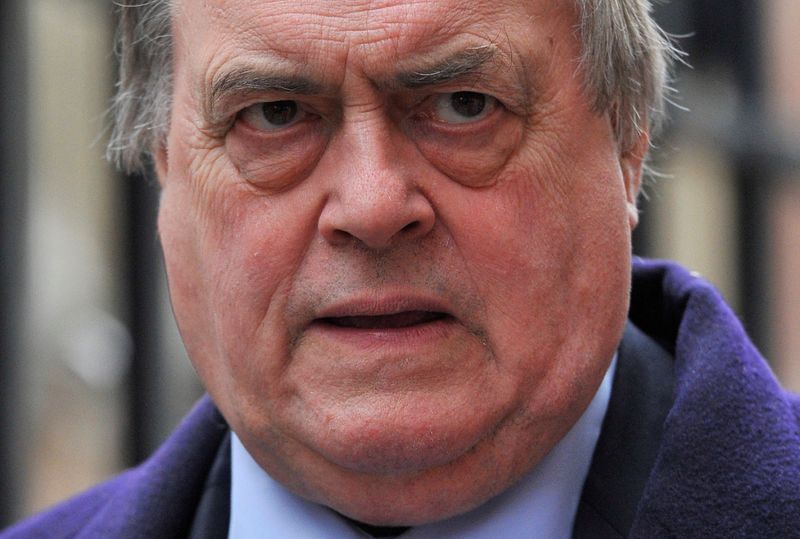UK’s John Prescott: the bridge who held old and new Labour together for Tony Blair

By Kate Holton
LONDON (Reuters) – John Prescott, Britain’s longest-serving deputy prime minister who died on Wednesday, was indispensable to Tony Blair’s New Labour government, a working-class trailblazer who connected with the public in ways most politicians cannot.
Even after punching an egg-throwing protester during an otherwise carefully-scripted 2001 election campaign, Prescott, who died of Alzheimer’s aged 86, weathered criticism saying he had just defended himself – an episode that earned him the nickname “two jabs”.
Born in Wales, Prescott was the bridge who kept Labour’s traditional trade union supporters on side while its modernisers, former prime ministers Blair and Gordon Brown, shifted the party to the centre ground to help it win three election victories after nearly two decades in opposition.
The proud former union official also acted as a marriage counsellor between the two men as the mistrust in their relationship began to poison their administration.
That helped him survive a string of scandals, most famously the punching incident when he hit a member of the public after he had been pelted with an egg, an act that cemented his image as a bare-knuckle politician of the old school.
“Of course, it would have all been better if it hadn’t happened,” Blair said at the time. But added: “John is John”.
Prescott was later quoted as telling Blair you “told us to connect with the electorate, so I did”. He said in 2019 that when he came to die, his 50-year political career would be reduced on the television news to “60 seconds of me thumping a fellow in Wales”.
FIGHTING POLITICIAN
Prescott was born on May 31, 1938, in a seaside house in Wales. His father was a railway signalman, his mother a maid.
Having left school at 15, he went to sea two years later as a steward on a cruise ship where boxing bouts were organised among the crew to entertain the passengers.
“I was in my share of fights,” he was quoted as saying.
After a stint at Oxford’s Ruskin College, he entered parliament in 1970 and worked his way up the ranks, becoming deputy prime minister to Blair when the Labour government won a historic victory in 1997.
He was handed a wide ministerial brief, and was credited by his critics and colleagues alike for being a hard working and deft politician. But he was also lampooned by the press for his lack of oratory skills and was mocked by the opposition for his working class background.
Harking back to Prescott’s time at sea, Conservative grandee Nicholas Soames used to shout “Another G&T (gin and tonic) Giovanni” each time Prescott got to his feet in the House of Commons.
He was ridiculed for having two Jaguar cars which hit the headlines as “Two Jags” when he used one to travel 200 yards to an event, saying he needed to protect his wife Pauline’s hair from being blown around.
His reputation also suffered after he acknowledged a long extra-marital affair with his diary secretary in April 2006.
But Blair described Prescott as one of the most talented people he had met in politics, and said he had been vital in keeping the “whole show together” in Labour’s decade in power.
Brown said most people only saw the “bruiser” caricature, but said Prescott was a man who exuded warmth.
“Alzheimer’s was a terrible thing, but he never lost this warmth and friendliness, which he showed at all times in private conversations,” he told BBC Radio.
Prescott also led negotiations on the Kyoto Protocol on climate change and told the Guardian newspaper in 2018 he considered it his greatest achievement.
“I’ve never worked with anyone in politics — on my side of the pond or his — quite like John Prescott,” Al Gore, the former U.S. vice president and climate campaigner, said on Thursday.
Prescott retired from the House of Commons in 2010, when Labour lost to the Conservative Party, and moved to the upper House of Lords, where he stayed until July this year.
He is survived by his wife of 63 years, Pauline, and two sons. He died surrounded by loved ones and jazz, his family said.
(Reporting by Kate Holton, editing by Elizabeth Piper and William Maclean)